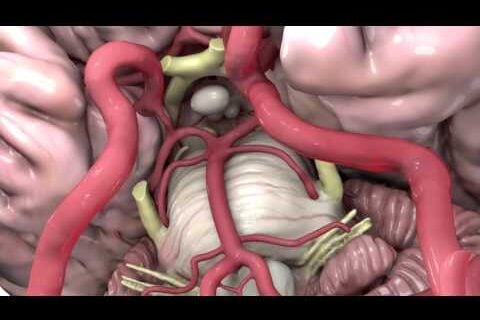One of the earliest signs of Alzheimer’s disease is a decline in glucose levels in the brain. It appears in the early stages of mild cognitive impairment — before symptoms of memory problems begin to surface. Whether it is a cause or consequence of neurological dysfunction has been unclear, but key research at the Lewis Katz School of Medicine at Temple University now shows unequivocally that glucose deprivation in the brain triggers the onset of cognitive decline, memory impairment in particular.
Dementia Books & Videos on Amazon:
FREE Newsletter:
Insulin Resistance is a Known Dementia Risk Factor
As diabetes is a condition in which glucose cannot enter the cell, this research gives good reason to suggest that Alzheimer’s is caused by a pathway similar or related to a type of diabetes. This possibility is strengthened by the fact that insulin resistance in type 2 diabetes is a known risk factor for dementia.
“In recent years, advances in imaging techniques, especially positron emission tomography (PET), have allowed researchers to look for subtle changes in the brains of patients with different degrees of cognitive impairment,” explained Domenico Praticò, MD, Professor in the Center for Translational Medicine at the Lewis Katz School of Medicine at Temple University (LKSOM). “One of the changes that has been consistently reported is a decrease in glucose availability in the hippocampus.”
Memory, Glucose & Tau
The hippocampus plays a key role in processing and storing memories. It and other regions of the brain, however, rely exclusively on glucose for fuel — without glucose, neurons starve and eventually die.
The ground-breaking study, published online in the journal Translational Psychiatry, is the first to directly link memory impairment to glucose deprivation in the brain specifically through a mechanism involving the accumulation of a protein known as phosphorylated tau.
More Tau, More Dementia
“Phosphorylated tau precipitates and aggregates in the brain, forming tangles and inducing neuronal death,” Dr. Praticò explained. In general, a greater abundance of neurofibrillary tau tangles is associated with more severe dementia.
The study also is the first to identify a protein known as p38 as a potential alternate drug target in the treatment of Alzheimer’s disease. Neurons activate p38 protein in response to glucose deprivation, possibly as a defensive mechanism. In the long run, however, its activation increases tau phosphorylation, making the problem worse.
Memory, Glucose Problems and Cell Death
To investigate the impact of glucose deprivation on the brain, Dr. Praticò’s team used a mouse model that recapitulates memory impairments and tau pathology in Alzheimer’s disease. At about 4 or 5 months of age, some of the animals were treated with 2-deoxyglucose (DG), a compound that stops glucose from entering and being utilized by cells. The compound was administered to the mice in a chronic manner, over a period of several months. The animals were then evaluated for cognitive function. In a series of maze tests to assess memory, glucose-deprived mice performed significantly worse than their untreated counterparts.
When examined microscopically, neurons in the brains of DG-treated mice exhibited abnormal synaptic function, suggesting that neural communication pathways had broken down. Of particular consequence was a significant reduction in long-term potentiation- – the mechanism that strengthens synaptic connections to ensure memory formation and storage.
Upon further examination, the researchers discovered high levels of phosphorylated tau and dramatically increased amounts of cell death in the brains of glucose-deprived mice. To find out why, Dr. Praticò turned to p38, which in earlier work his team had identified as a driver of tau phosphorylation. In the new study, they found that memory impairment was directly associated with increased p38 activation.
Glucose and Alzheimer’s
“The findings are very exciting,” Dr. Praticò said. “There is now a lot of evidence to suggest that p38 is involved in the development of Alzheimer’s disease.”
The findings also lend support to the idea that chronically occurring, small episodes of glucose deprivation are damaging for the brain. “There is a high likelihood that those types of episodes are related to diabetes, which is a condition in which glucose cannot enter the cell,” he explained. “Insulin resistance in type 2 diabetes is a known risk factor for dementia.”
According to Dr. Praticò, the next step is to inhibit p38 to see if memory impairments can be alleviated, despite glucose deprivation. “It is an exciting avenue of research. A drug targeting this protein could bring big benefits for patients,” he added.












